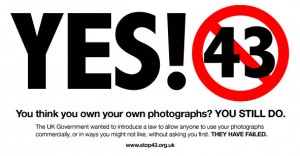“Newspapers deserve to die,” Professor Robert Picard told delegates at the University of Wesminster / British Journalism Review Journalism’s Next Top Model conference this morning.
But that doesn’t mean he wants to see journalism die: it’s time to change the products and the platforms, he said. The future of journalism is dependent on journalists and other distribution platforms; not newspapers.
Picard, Hamrin Professor of Media Economics and director of the Media Management and Transformation Centre, at Jonkoping University in Sweden and fellow at the Reuters Institute in Oxford, claimed that print distribution is an expensive and inefficient way to spread news. “I think we’ll have paper for a while,” he said. For 20 years even, he guessed, but we’ll see more migration to screen.
He’s not at all nostalgic about news organisations’ bureaux spread out over the world, and says it’s time for newspapers to pool resources and become more efficient. As newspapers grew in the second half of the 20th century, they developed complex systems and bureaucracy, which has led to inefficiency, he said.
“You get very high overhead costs to support the corporations along the way, one of the big problems with success,” he said.
He encouraged news organisations to consider:
- Smaller and more agile operations
- A more entrepreneurial approach
- More innovation in products and process
- Alliances, networking and cooperation
- Multiple sources of financial funding
- Rethinking of entire business model of media and how it creates value for customers and itself
Something is wrong with the product, he said, when 40 per cent of public claim they don’t want to read the newspaper they used to read (source of stat not cited).
“I’ve been saying for 10 years – why in the world are newspaper printing stock tables?” It’s time to kill these, along with the television guides, he said, as consumers find with other ways of sourcing up-to-date information.
Stop simply reporting news and provide value to the consumer, he said. Consumer can get top ten headlines from internet services, so newspaper organisations have to provide something different than the “flow of information”.
Answering a question about the realities for newspapers, he speculated that while the Guardian is North America’s biggest news site (that it attracts the highest number of unique users in the region is a little known fact, he said), the newspaper itself (not the org, necessarily) is likely to die – along with the Independent. Newspapers don’t interest Picard at all – but saving journalism does.
Professor Picard recently sat on a panel between Arianna Huffington and Rupert Murdoch, who don’t like each other very much. Murdoch is saying we’ve got to save the business; Huffington is saying we have to destroy the business. Some place between Huffington and Murdoch’s realities is where we are, he said.
I spoke to Professor Picard afterwards. Here’s the clip:

